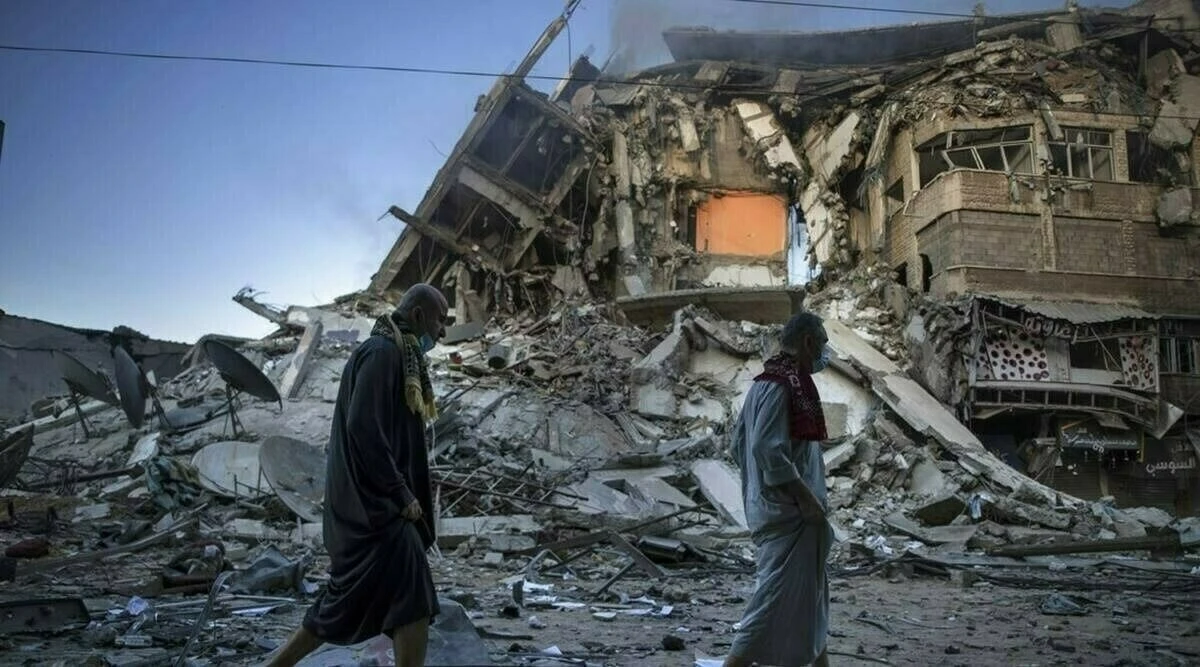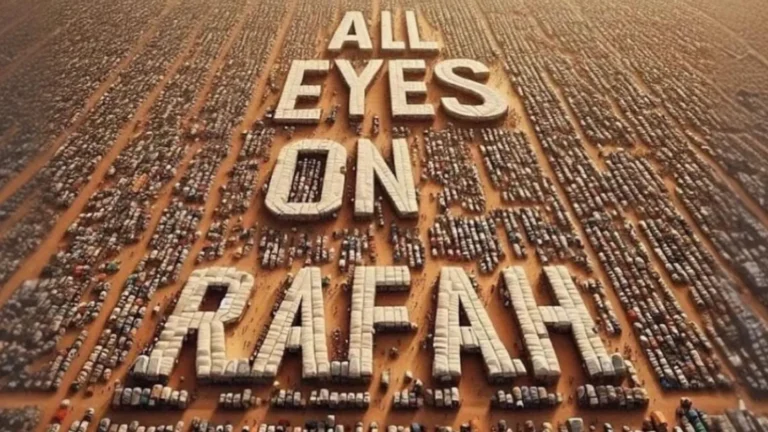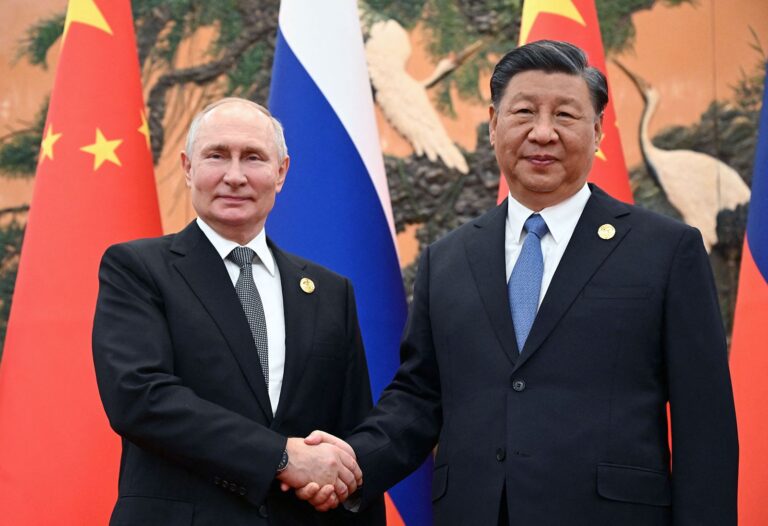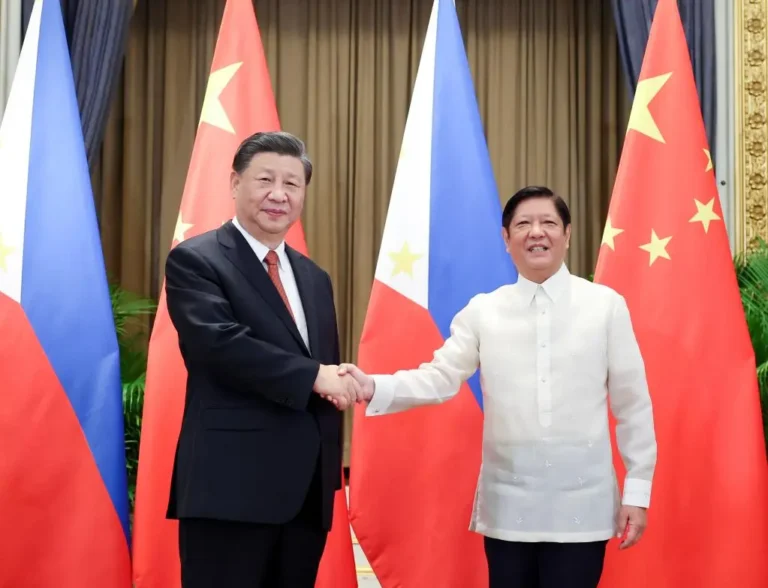As the sands shift on the political landscape of the Middle East, an intriguing development is underway, keeping observers on their edges. The chief of Mossad, Israel’s formidable intelligence agency, is expected to jumpstart moribund Gaza ceasefire talks. For those seeking an end to this long-lasting conflict, this move stirs faint whispers of hope. Yet, behind the scenes, multiple gears are at play; complex dynamics whirl in this geopolitical equation leaving us speculating about possible outcomes.
While the course of these anticipated negotiations remains fluid, one cannot underscore the sheer weight of this move. Hop aboard as we dive headfirst into this riveting story, decompressing complex international relations issues into digestible chunks, and unraveling the continuous drama unravelling in the Middle East’s political panorama. Stay tuned to learn more about the political chess game featuring the partaitogel Mossad chief’s presumed return to Gaza ceasefire talks. Today, we dive deep into the labyrinthine world of geopolitics that never fails to enthral us.

Background of the Gaza conflict
The Gaza conflict, a bitter struggle that has been raging for decades, has its roots in the larger Israel-Palestine dispute. This contentious issue, which began with the birth of Israel in 1948, has often found its volatile epicenter in Gaza, a tiny strip of land wedged between Israel, Egypt, and the Mediterranean Sea.
In this narrow corridor, home to nearly two million Palestinians, the conflict’s flames have consumed countless lives, dreams, and hope, leaving behind an indelible imprint of suffering and despair. Since 2005, when Israel unilaterally disengaged from Gaza, the strip has been controlled by Hamas, a Palestinian political and military organization often at odds with Israel.
Through the years, the Gaza conflict has seen periods of relative calm punctuated by bouts of intense violence, with several major military confrontations occurring. The conflict’s cyclical nature, characterized by a pattern of ceasefire and subsequent breakdown, has led to a seemingly never-ending cycle of destruction and reconstruction.
Previous ceasefire talks and their outcomes
The history of Gaza ceasefire talks is a narrative of tentative hope followed by stark disappointment. The conflict’s cyclical nature has necessitated multiple rounds of ceasefire talks, with a number of ceasefires coming into effect only to be broken later.
One of the most significant talks was the 2014 ceasefire, following a 50-day war. The agreement, brokered by Egypt, ended the hostilities but failed to address the underlying issues, leaving the door open for future conflict. Similarly, the 2018 ceasefire, again mediated by Egypt and the United Nations, managed to halt the violence temporarily but could not prevent its eventual resurgence.
The tale of ceasefire talks is a story of missed opportunities and unfulfilled promises. Each breakdown in talks not only reignites the conflict but also pushes the prospect of lasting peace further away. It’s a grim reminder of the immense challenge that lies in resolving this complex conflict.
Expectations from the new round of talks
Against this backdrop of failed talks and resurgent violence, the expected return of the Mossad chief to Gaza ceasefire talks has sparked a new wave of cautious optimism. The Mossad chief, with his deep understanding of the region’s complex dynamics and vast intelligence network, is seen as a key player who could potentially break the deadlock.
There are several expectations from the upcoming talks. First, there is hope that the ceasefire will not only halt the immediate violence but also pave the way for addressing the deeper issues plaguing the Gaza strip. This includes lifting the Israeli blockade, improving living conditions for Gaza’s residents, and bringing about a broader political solution.
Second, there is an expectation that the Mossad chief’s involvement will lend much-needed credibility and seriousness to the talks. His involvement could signal Israel’s commitment to finding a resolution, which could help build trust and goodwill among the negotiating parties.

The role of Mossad chief in ceasefire talks
The Mossad chief plays a crucial role in ceasefire talks, acting as a linchpin connecting the various stakeholders involved. With his vast intelligence resources and deep understanding of the region’s intricacies, the Mossad chief is uniquely positioned to navigate the complex terrain of Gaza ceasefire talks.
Given Mossad’s central role in Israel’s security apparatus, the chief’s involvement in talks sends a powerful signal about Israel’s intentions. His presence at the negotiation table could help bridge the trust deficit that often hampers the talks.
Furthermore, the Mossad chief, with his extensive network of contacts in the region, could play a pivotal role in bringing together the various factions involved in the conflict. His efforts could help build a broad-based consensus, a crucial prerequisite for a successful ceasefire.
Potential challenges in resuming Gaza ceasefire talks
Resuming Gaza ceasefire talks is a daunting task, fraught with numerous challenges. The foremost among these is the deep-rooted mistrust between the warring sides. Years of conflict and broken promises have eroded trust, making dialogue and compromise incredibly difficult.
Another major challenge is the internal divisions within the Palestinian side. The rivalry between Hamas, which controls Gaza, and Fatah, which governs the West Bank, often complicates the negotiation process. Achieving a unified Palestinian position is crucial for the success of the talks.
Lastly, the broader regional dynamics also pose a challenge. The Middle East is a geopolitical cauldron with various actors and interests at play. These dynamics often influence the ceasefire talks, adding another layer of complexity to the already intricate puzzle.
The importance of a ceasefire for Gaza
A ceasefire is of paramount importance for Gaza. The strip, with its high population density and limited resources, bears the brunt of the conflict. Each outbreak of violence deepens the humanitarian crisis, exacerbating the suffering of Gaza’s residents.
A ceasefire could bring much-needed respite, allowing for the delivery of humanitarian aid and the rebuilding of damaged infrastructure. It could also provide an opportunity to address the underlying issues plaguing Gaza, such as the crippling Israeli blockade and the dire economic conditions.
Moreover, a successful ceasefire could serve as a stepping stone towards a broader political solution. It could create an environment conducive to dialogue and negotiation, potentially opening the path towards a lasting resolution of the Israel-Palestine conflict.
International perspective on Gaza ceasefire talks
The international community’s perspective on Gaza ceasefire talks is a mix of hope, frustration, and skepticism. The United Nations, the European Union, and other major powers have repeatedly called for a ceasefire, expressing concern over the humanitarian situation in Gaza.
Yet, there’s also a sense of frustration with the repeated breakdown of ceasefires and the lack of progress towards a lasting resolution. The international community has often found itself playing the role of a helpless spectator, unable to influence the course of events significantly.
However, the involvement of the Mossad chief in the upcoming talks has sparked some optimism internationally. Many hope that his involvement could inject new momentum into the talks, possibly leading to a breakthrough.

Possible outcomes of the ceasefire talks
Predicting the outcome of the Gaza ceasefire talks is a perilous task, given the conflict’s complex and volatile nature. However, there are a few possible scenarios. At one end of the spectrum, the talks could result in a durable ceasefire, setting the stage for a broader political dialogue.
Alternatively, the talks could result in a temporary cessation of hostilities, similar to previous ceasefires. While this would bring immediate relief, it would leave the underlying issues unresolved, potentially setting the stage for future conflict.
At the other extreme, the talks could fail to achieve even a temporary ceasefire, leading to a continuation or even escalation of the conflict. This would be the most unfortunate scenario, deepening the suffering of Gaza’s residents and further destabilizing the region.
Conclusion
The expected return of the Mossad chief to Gaza ceasefire talks is a development of considerable significance. His involvement could potentially alter the dynamics of the talks, possibly leading to a breakthrough. However, the road to a ceasefire is strewn with obstacles, and achieving a lasting resolution will require patience, courage, and a willingness to compromise.
While the course of the upcoming talks remains uncertain, one thing is clear: the stakes are incredibly high. For the residents of Gaza, a ceasefire is not just a political agreement; it’s a lifeline, a glimmer of hope in a landscape dominated by despair. As the world watches with bated breath, let’s hope that the talks bring about a ceasefire and pave the way for a brighter future for Gaza.
If you found this article insightful and are interested in exploring more about unique cultural and historical landmarks, we highly recommend reading our article about the Jagannath Puri Temple. Dive into the rich history and spiritual significance of one of India’s most revered sites.

























